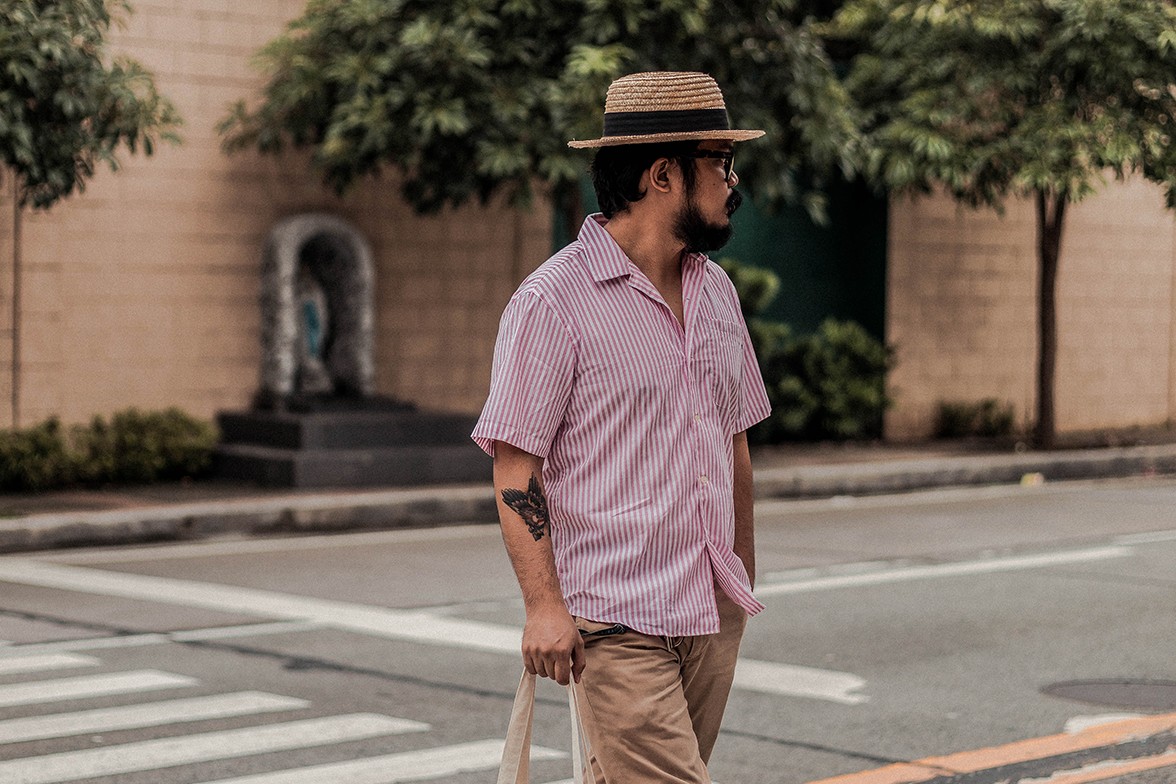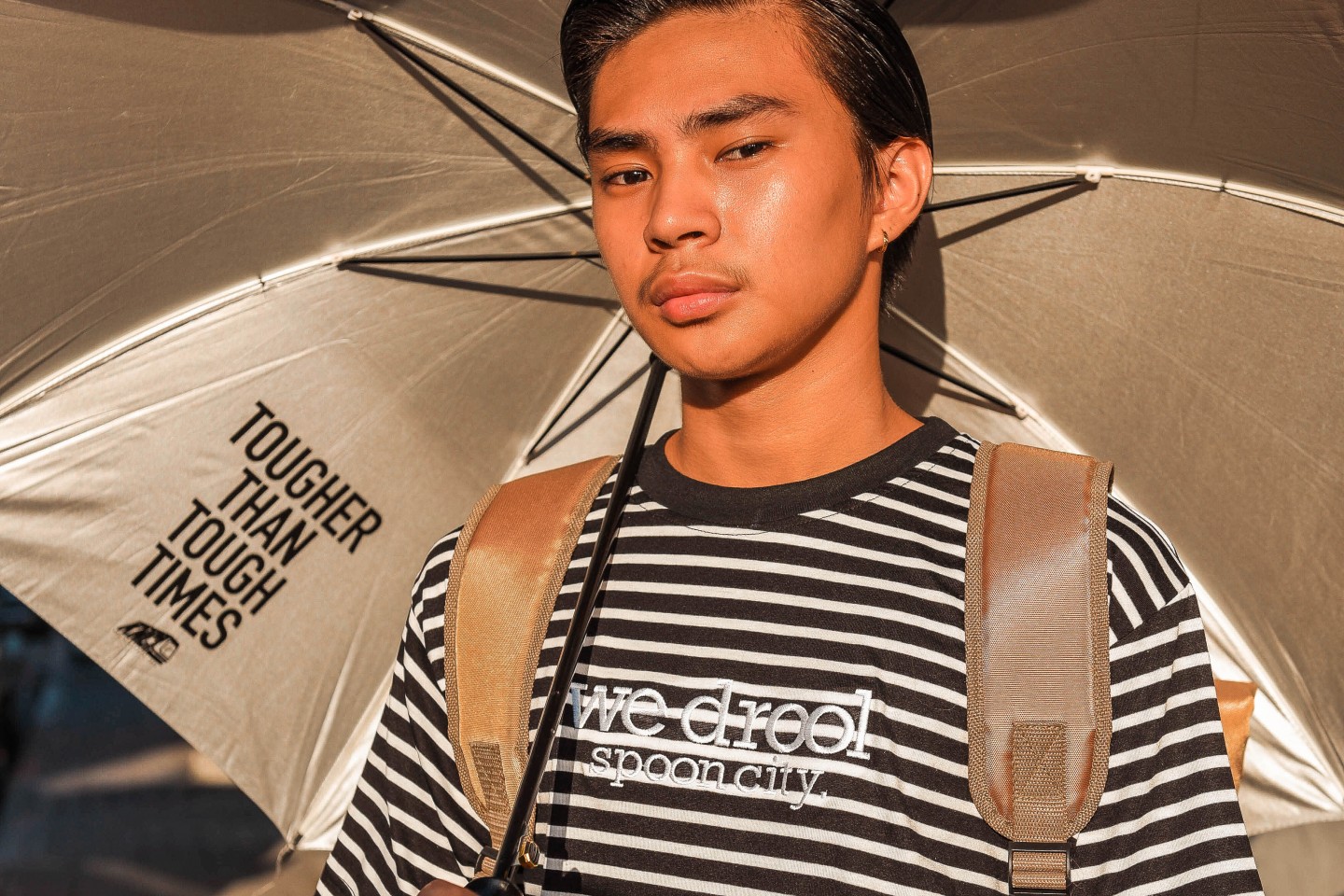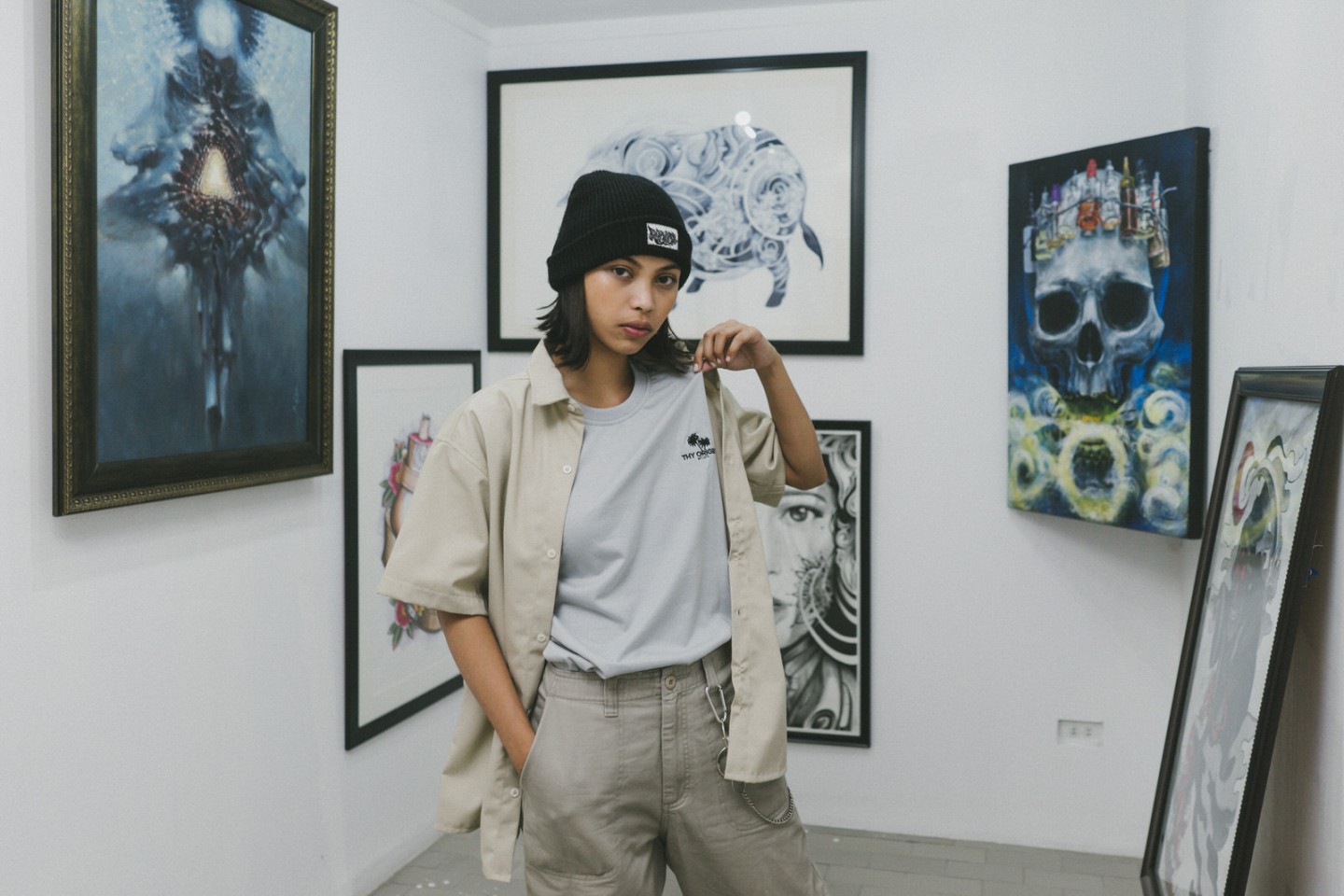Denise Santos is currently nominated for a Daytime Emmy. With her co-writer Laurentia Editha, she’ll potentially win the award for Outstanding Music Composition and Direction.
But this isn’t her first nomination. She’s won before.
In 2021, at the 42nd Annual News & Documentary Emmy Awards, Denise and her writing partner Adam Lukas won the award for Outstanding Music Composition – their work in BBC documentary Primates garnering them the win.
“I really don’t give myself a lot of credit for the success of those Emmys,” says Denise. “I feel like I wouldn’t have gotten that if not for Bleeding Fingers.” Bleeding Fingers is an in-demand composer collective founded by multi-awarded film scorer and record producer Hans Zimmer. Up until July 2022, the collective was a home for Denise where as a composer she would weave layers of depth out of sound into fabrics built by directors – using conversations with these directors to arrive at a desired feel for what’s appearing on the screen.
While Denise is still in the depth-building business, she’s striking out on her own – engaging with her creative practice on her own terms. ‘When I was in Bleeding Fingers, work was being given to me,” she says, “and it was like non-stop work.” She stopped what she called the “intentional search”. “I stopped going out. I stopped finding new creative people to just hang out with. I was in my bubble. Now, I have this opportunity to finally […] feel like I’m re visiting the freelancer in me from 2010 and I’m just enjoying it a lot.”
On the face of it, Denise’s journey reads like a cycle occurring along a steady ascent—arriving at a career in a unique pocket of the music industry—but hers is another expression of life lived through massive changes, difficult decisions, and risk.
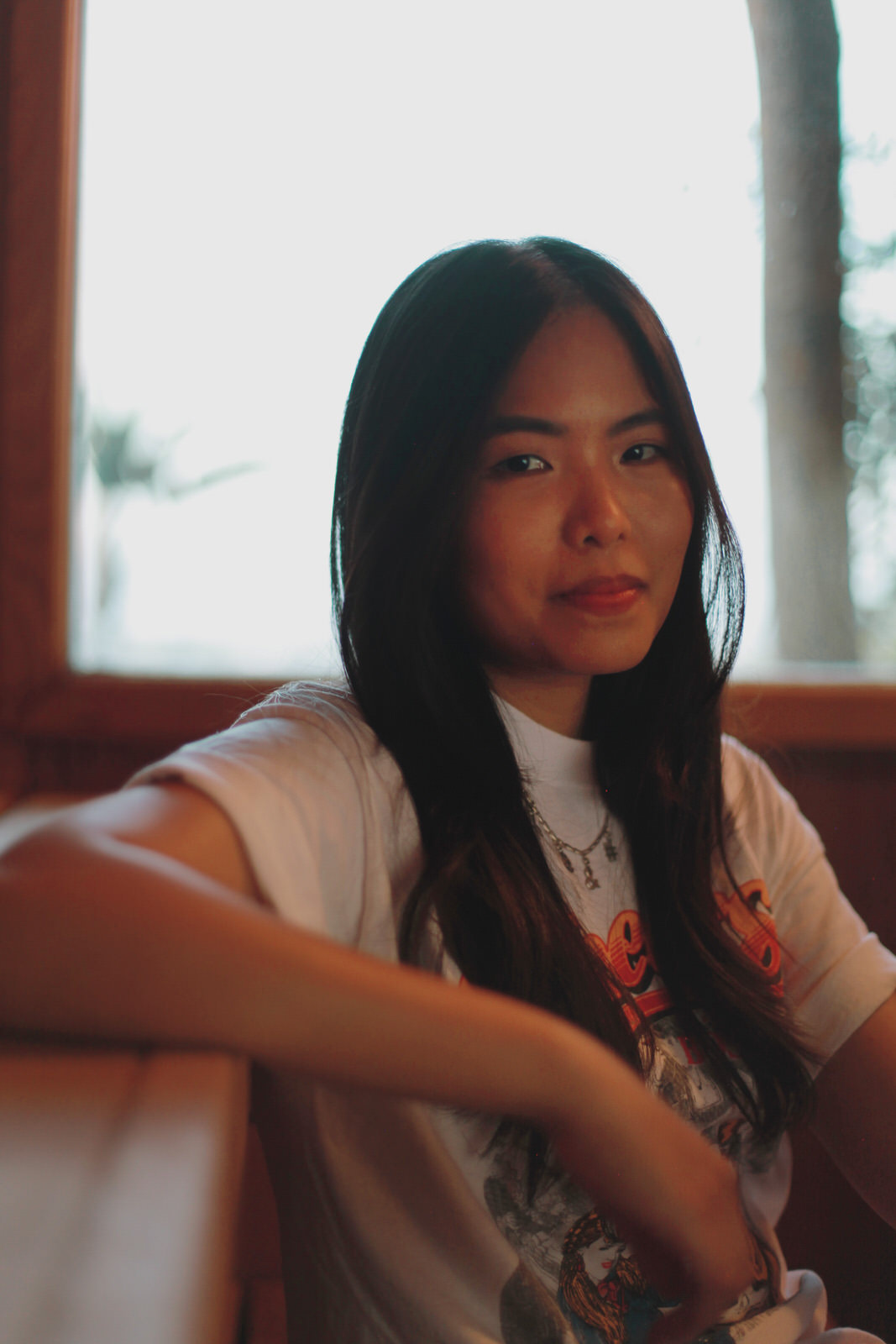
Entering University, She Dropped Music Altogether
And so purposefully ended—ended, at least seemingly—a passion born of an activity Denise was made to take up. “It was definitely forced, “ she laughs. “I find that it’s quite common in Asian communities for kids to have been forced to play piano.” Private piano lessons were the Saturday activity of choice for Denise and her siblings, but while the siblings dropped the practice, Denise fell in love with it. “It wasn’t forced anymore,” she adds.
Extending the ways she could express the language that is music, Denise asked her piano teacher to tutor her in guitar and vocals. She joined her local church choir and by seventh grade was in her first band, her first performance in front of a “crowd crowd” delivering the sounds of Michelle Branch and Green Day. “Then,” she says, “I just brought the habit of being in a band all the way from high school to post-college.”
Taking up a business course, namely Communications Technology Management, she dropped the music – not the love for it, but simply the practice. “I didn’t think that music would be a career for me,” she says. “I just let go of everything, even the persona.”
Heralding some of our first jabs at independence, college is a time for changing names, shaving our heads, and adopting pieces of who we think we’ll end up being, but clearly this step-by-step approach to being doesn’t quite hold up against the way life works out.
Post-college, applying around with the rest of the graduates, – banks, a popular place to send a resume – Denise ended up as a marketing intern at BMW. And that’s not far-fetched, given a piece of the persona she’d attached to herself was that of someone exercising a creative practice within a business. But this stint only lasted a few months.
With a passion that never blew out, Denise, internally navigating towards self-honesty, decided: “I wanted to be a musician.”
I didn’t think that music would be a career for me… I just let go of everything, even the persona.
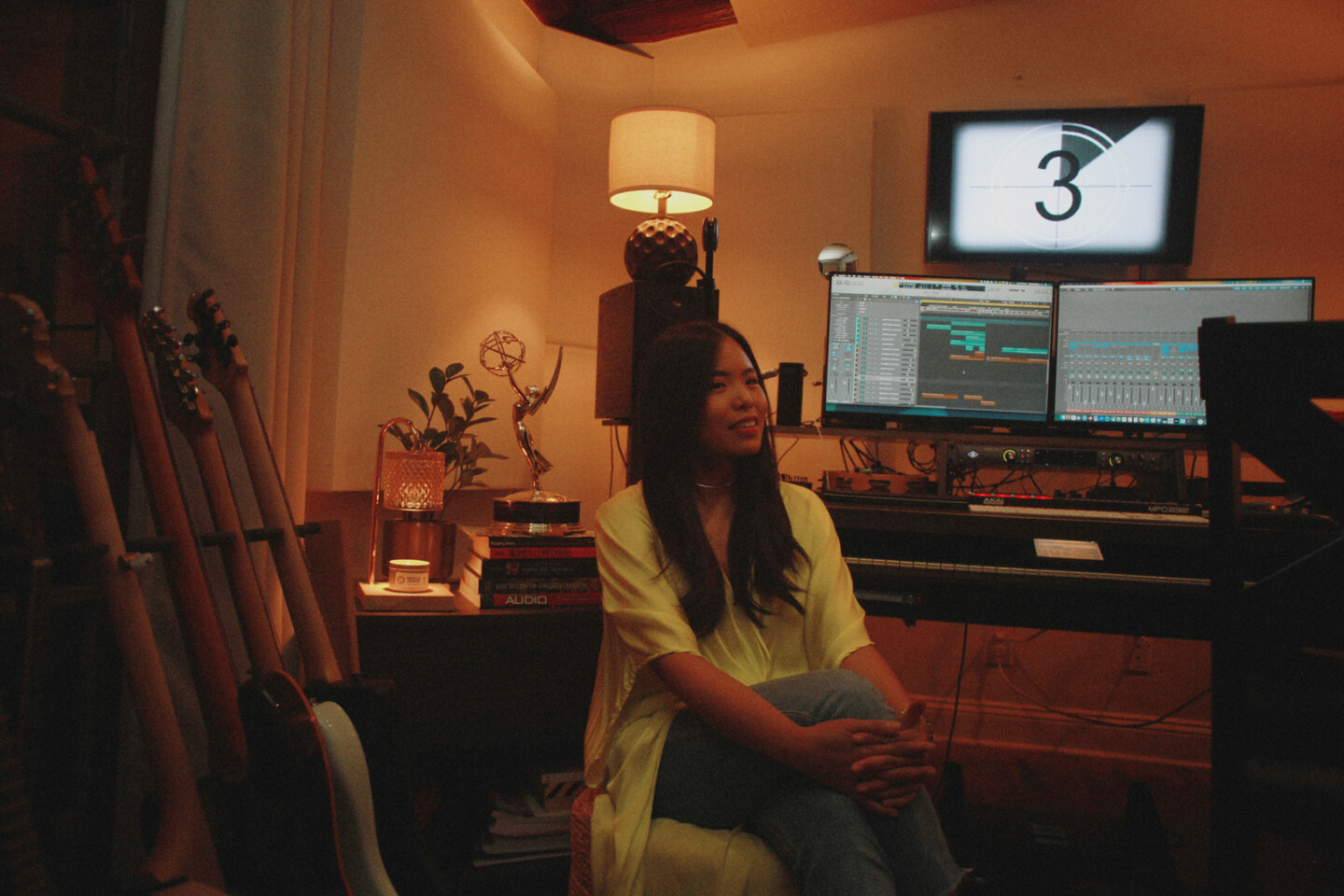
Seeking Out Change and The Power of Presence
A difficulty with exiting a schooling system is the loss of a system. Tomorrow’s problem is likely an exam; next year’s problem, graduating. Out in the wild, the whole world with its infinite channels is grey with possibilities. Fortunately and unfortunately, the onus then of changing our circumstances is largely on our own shoulders.
Denise wanted to get back into music. But doing something about that is the tricky part—recognising the weight of responsibility with an action. “It was a very slow process”, she says. And it kicked off with Denise working in a radio station, iFM 93.9.
Denise didn’t know how to produce yet, but there was real value in just being surrounded by people with ambitions and creative practices aligned with her own. “I was doing sales and marketing,” she says, “but at least I was surrounded by music [and] creatives. I had a blast just hanging out with the DJs […] and just listening and seeing how creative they could be.” With an office right next to the DJ booth, she was eventually taught how to wield some of the tools of the trade, one of which was FruityLoops (now called FL Studio)—a digital audio workstation.
Seeking out change with a strong chord of thriftiness – which continues to drive many of the events in Denise’s music career – Denise began taking lessons on music production while looking for freelance gigs as a composer.
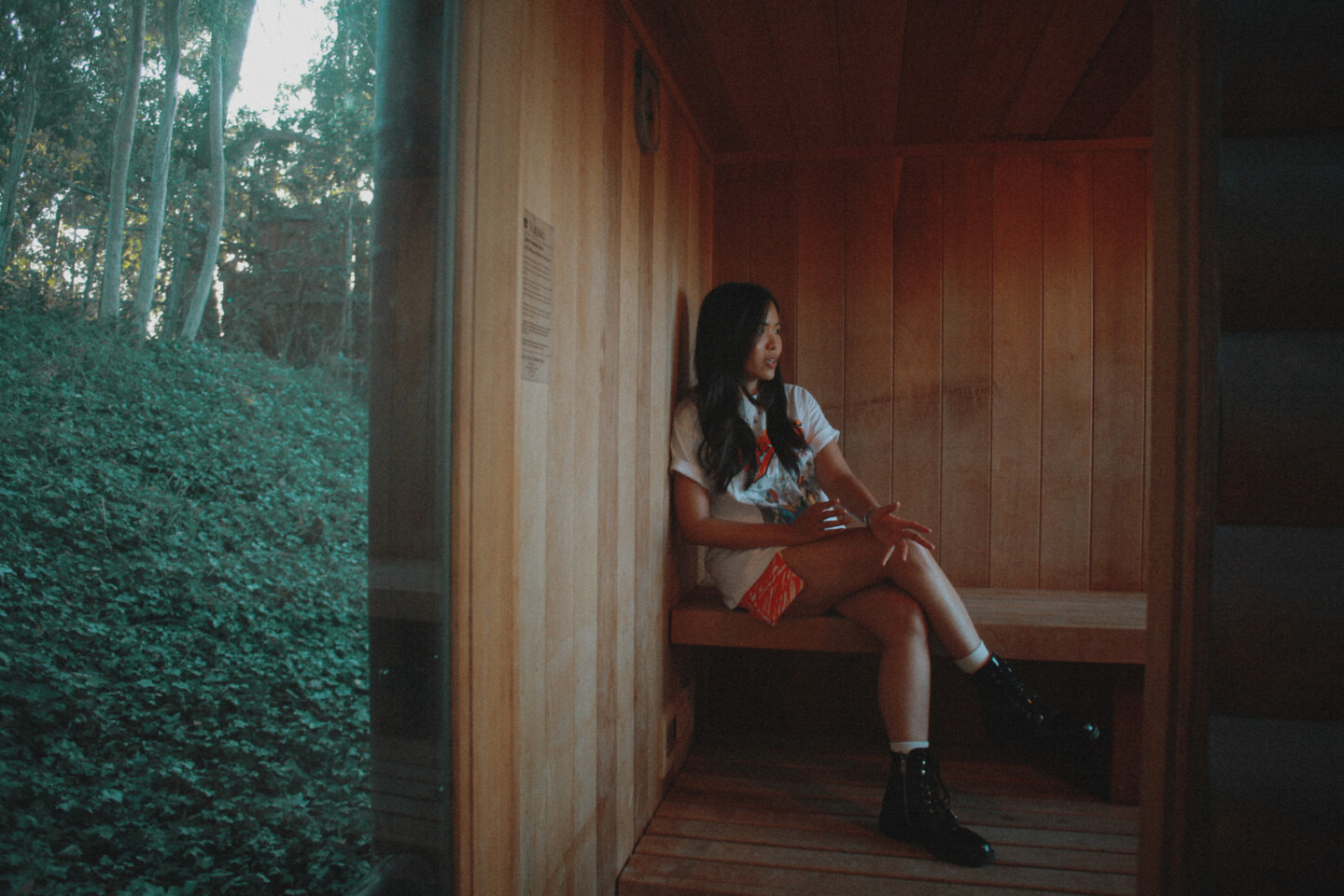
“I did, I’ve done, [and] I am still doing a lot of ala carte studying,” she says. At the time, she took private classes with composer Jimmy Antiporda; later on, she took a professional certificate in music production online through Berklee College of Music. “Sir Jimmy was my introduction on how to use Logic (an audio editing and MIDI sequencing platform) […] and then Berklee was […] more about learning how to mix, learning how to record, learning how to master but it was all still very basic information.”
On the gig-finding side, Denise was equally pro-active.
“Hey, if you ever need a keyboard sessionist I’m trying to get back to music.” A relaxed but deliberate offer from Denise to Jason, bassist at Hidden Nikki. Looking back on her inclination to work with the contemporary jazz group, Denise says: “I just offered my services. They availed. And […] a few rehearsals later, they asked me to join the band.”
“Little did I know what a challenge that would have been,” says Denise, having mostly been a guitarist in bands prior. To add to the mounting challenge, this wasn’t just some keyboard gig. It was a jazz keyboard gig. “Ignorance is bliss, right?”
Aside from “[memorising] the shit out of” Hidden Nikki’s chord charts and MP3 files, Denise worked with Kai Honasan in the process of recording the latter’s album and Carlo “Ling” Lava. “[Ling] wrote an album of songs in the style of musical theatre [and] I was one of the keyboardists,” recalls Denise.
This body of work in the country is emblematic of Denise’s willingness to seek out change through challenge, surrounding herself with creatives that draw more creative energy out of her.
I think the best thing you can do is to strive to be better because the work will come. The second piece of advice is to learn or get used to making it known that this is what you do. You’re a musician, you’re a composer, you’re an engineer. That’s the only way you can get work.
Artists Need to Get Out There
Denise offers two pieces of advice for artists. “I think the best thing you can do is […] strive to be better because the work will come. The second piece of advice is to learn or get used to […] making it known that this is what you do. You’re a musician, you’re a composer, you’re an engineer. It’s about meeting people, right?”
“That’s the only way you can get work.”
“[That’s] like the formula no matter where you are, no matter where it takes you, if you have those two, I think you will live a very fulfilled creative life.”
It’s this attitude that led Denise to meet her mentor, composer and producer Nonong Buencamino. “I stalked him.” Denise laughs. After attending a talk Nonong was giving, Denise approached the composer, demo CD in hand, and said, “You know, I was so inspired by your talk […] and I think I really want to pursue composing as a career. I’d love it if you’d listen to my CV and give me feedback.”
Now, this move to composing and away from performing was the product of trying–of Denise immersing herself in the life of both a performing artist and a collaborative composer. “I think the decision came to me after trying out composing for a few ads, short films, and especially after landing my first feature film,” she says. “I had so much fun with the collaborative process with my directors, and wanted to keep it going. It felt so empowering to be able to help tell stories through music.”
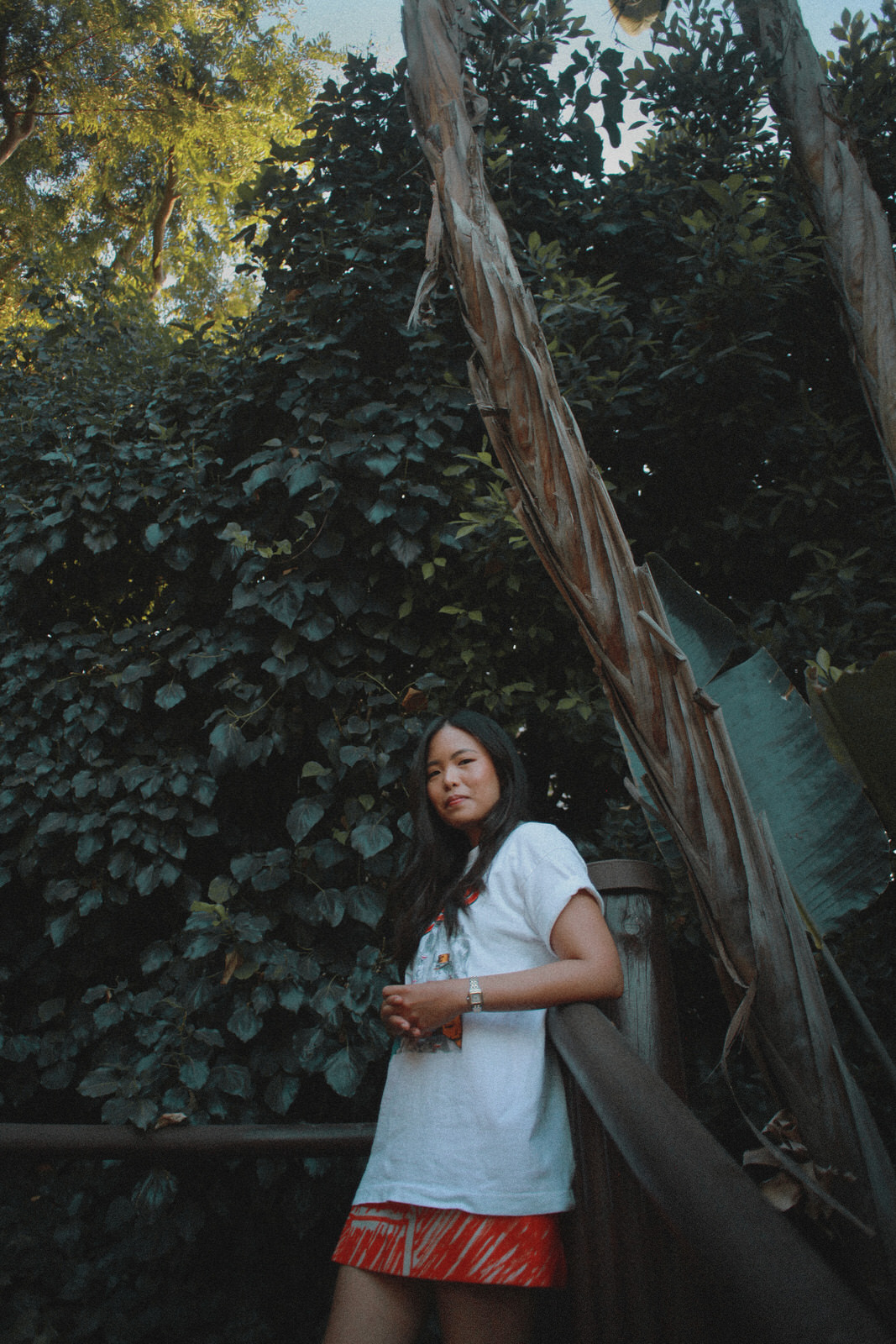
Nonong took the CD, gave it a listen, and emailed Denise a few weeks later, the duo grabbed coffee, he offered advice on her weaknesses and strengths, and continues to be a mentor – albeit virtually as Denise is now based in Los Angeles. “He was the one who advised me to study abroad,” she says. Taking the advice, Denise moved to LA to take up a course on Film Scoring at UCLA Extension – but would still prompt Nonong when career, existential, and philosophical questions would arise. “He would […] give me these nuggets of: ‘just watch more films’, ‘get inspired’, ‘live a life outside of music’, ‘step away from it’.”
UCLA Extension is designed for working professionals and so Denise had time to pursue interests outside of formal education. “I don’t even think I had a routine,” she says, “but […] during the day, I would work because I maintained my clientele from back home.”
With it in mind that an internship was part of the curriculum of her program, Denise attended what was a field trip to Hans Zimmer’s studio, Bleeding Fingers, in 2016. She found herself the only attendee with a resume handy.
“I was decided, like, ‘I’m gonna work here,’” she recalls. “So we do […] our rounds, and I started kind of like, envisioning a life there. By the end of the tour, I asked the receptionist, ‘hey, where can I apply for an internship?’ And she was like, ‘Oh, you can just leave your resume.’ An email, interview, and offer for a five-week internship followed.
“So I did that [for] five weeks,” she says. “A lot of it is throwing trash, cleaning kitchens, loading the dishwasher, unloading a dishwasher, and also taking lunch orders or dinner orders from composers [or engineers] working there.”
The Responsibility of a Composer
While these activities don’t sound as though they directly contribute to a career in music, Denise used them as a way in.
“If I get to sit in with someone while they’re working,” recalls Denise, “then that’s all I want from this internship.”
“It was through those sittings and asking people what their lunch orders are and actually delivering their food – that’s how I was able to make relationships within the staff that were currently there, and I think that’s how I got word of an opening for an assistant job.” She applied, got in as an assistant, and worked her way up to being a composer – a milestone for Denise in her stint at Bleeding Fingers.
Now, as she embarks as a composer outside of the collective, the same focus on listening and collaboration comes though during spotting sessions with directors. These are the sessions where composers sit down with directors, watch the film, and gain insight on their intention. “I take a lot of notes [during those sessions],” says Denise. ”I play some music that I think would fit [the] model but [which] I didn’t write – just [as] an example. ‘Do you think this fits?’ And we’ll have conversations about it.”
Aside from being able to write and produce music, a big part of the job is being a good interpreter and being able to meet your collaborator’s needs.
Denise’s responsibility in the production–in her words–is enhancing a story or scene through music. “The complexities of it lie in being able to read our collaborators the right way,” she says. “There’s such a wide range of emotions and so many different forms of expressing them, and putting together those nuances with our director’s taste and style is where it gets tricky. Aside from being able to write and produce music, a big part of the job is being a good interpreter and being able to meet your collaborator’s needs.”
This ability and willingness to listen, of being receptive and sensitive, helps Denise expand her vocabulary in this language of music–as well as refine her use of it in any given work. “Well it’s like any language, right? You listen a lot to the language you’re trying to learn,” says Denise. ”I listen to a lot of scores and I make playlists of genres of scores and I think when I’m at zero, completely lost, I’ll just listen to these playlists that I’ve created and get ideas.“
Rick Rubin, record producer and co-founder of Def Jam Recordings, has written about the task of the artist as a way of being in the world – not just of creating. It’s this same consumption of art, accumulating goodness knows where, coupled with whatever staves burnout, that allows artists to create pieces of work that resonate so potently.
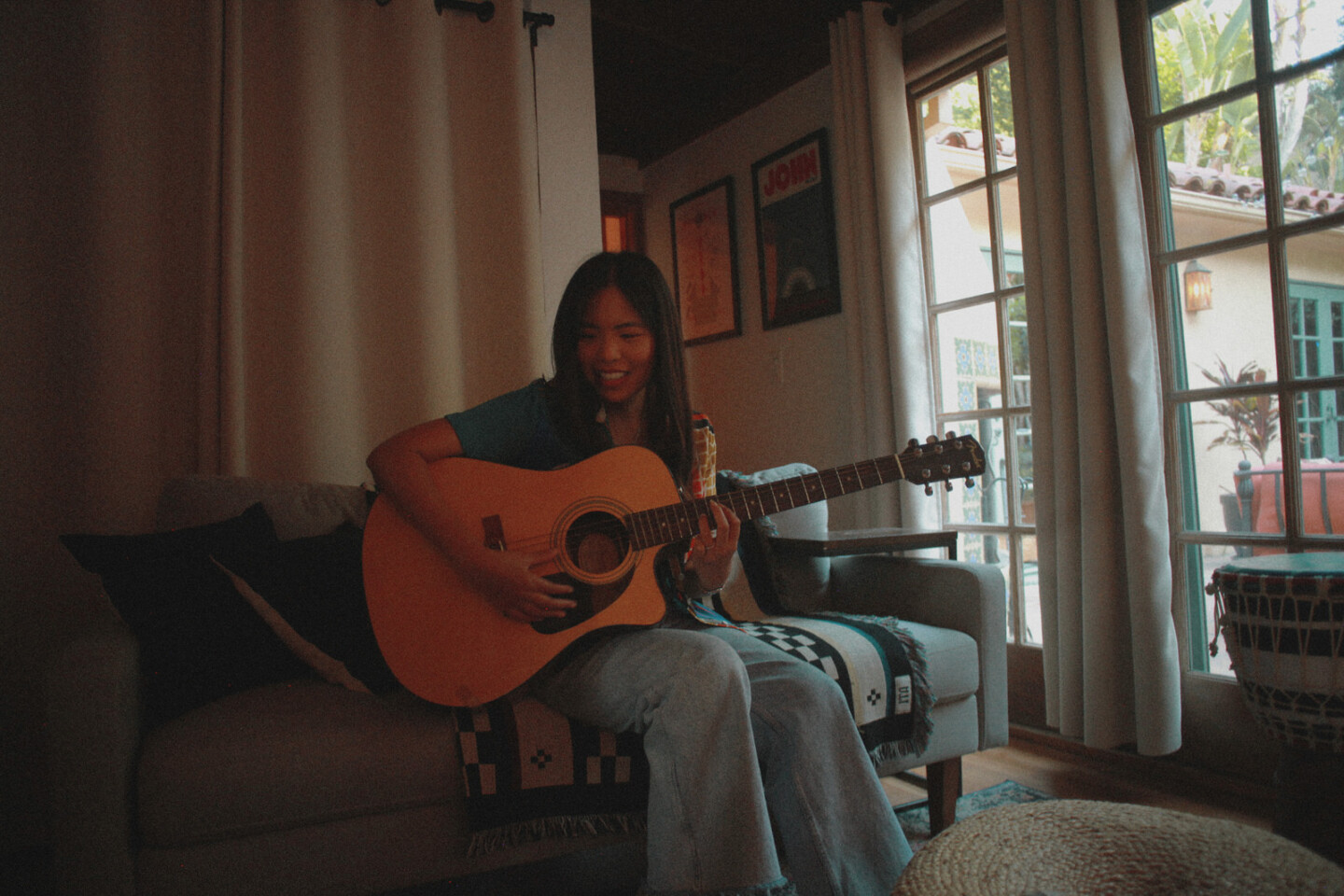
There’s only so much that words and actions can express. Music, for me, is the x factor.
“And then I also have this thing that I love to do where I just play piano, just kind of improvise and see what sticks,” says Denise. “It’s a mixture of listening to references and also just jamming it out. Then by putting those two together, I slowly come up with a motif or a concept.”
Absorbing references and concepts, bridging these with material from directors and mentors, and occasionally introducing limitations into the creation of a work (“whether it’s a melody, or a rhythmic phrase, or even […] conceptually–like I’m going to do purely 2000s pop sound”) creates the canvas for art to be born. It’s through this accumulation and interpretation that Denise handles the weight of responsibility borne by the composer–the responsibility of moving the viewer, of plucking our finest emotional strings.
“Do you ever have a mediocre day running around doing errands, and then when you put on some music it instantly brightens up your mood and makes life a little more fun?” asks Denise. “Or when you’re down in the dumps and let out a good cry after hearing a really good, cathartic song? This is the value that I see in composing for film. It’s really powerful in getting emotions across. There’s only so much that words and actions can express. Music, for me, is the x factor. The special sauce that you never thought you needed but then once you’ve added it, it really ties the whole dish together.“
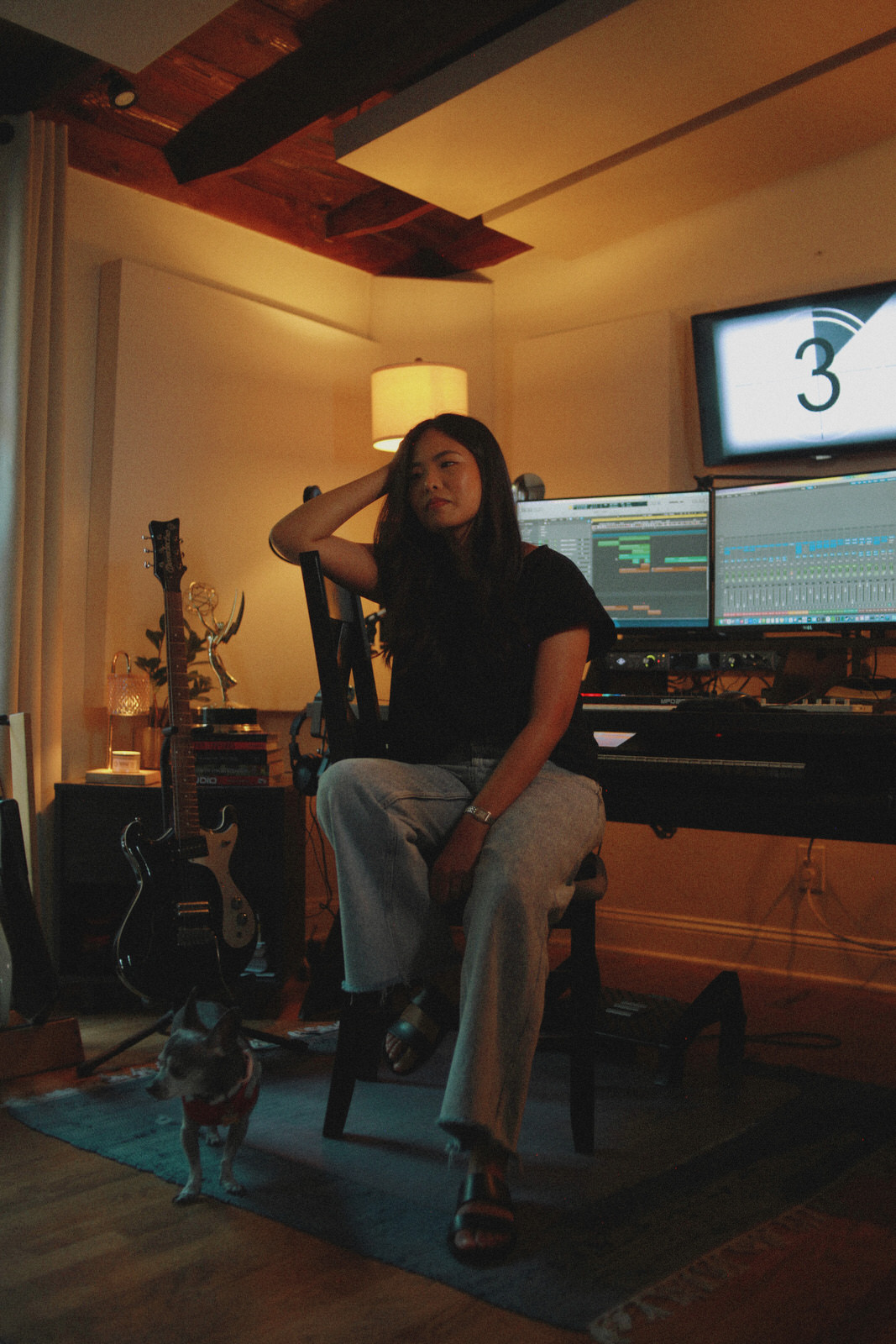
CREDITS
WRITER Jaymes Shrimski
EDITOR Tricia Quintero
PHOTOGRAPHER Bianca Catbagan
SUPPORT PURVEYR
If you like this story and would love to read more like it, we hope you can support us for as low as ₱100. This will help us continue what we do and feature more stories of creative Filipinos. You can subscribe to the fund or send us a tip.

